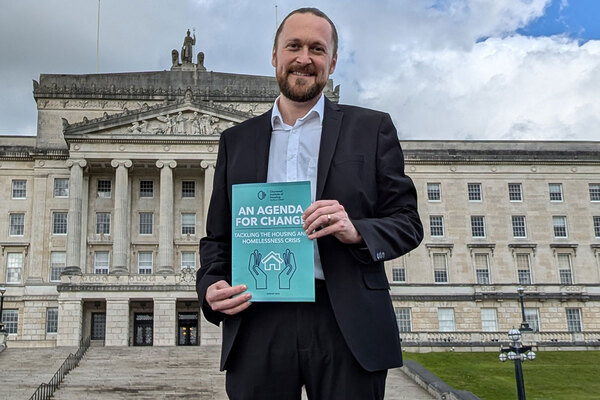You are viewing 1 of your 1 free articles
Council spending on temporary accommodation tops £2.2bn
Council spending on emergency temporary accommodation has reached £2.29bn, according to new provisional government figures.

Covering the period from April 2023 to March 2024, the spend represents a jump of 29% from £1.77bn in the previous year.
Following the data release, homelessness charity Crisis has called on the government to provide more financial support to councils in the Autumn Budget.
Half of local authorities’ total spend (£1.34bn) was on nightly paid accommodation and B&Bs – the least suitable form of temporary accommodation.
The amount spent on this form of accommodation rose by 55% on the previous year.
It comes after figures released earlier this month showed that a record 117,450 households were living in temporary accommodation as of March 2024, a 12% increase on the previous year.
Crisis said the increasing reliance on unsuitable accommodation “underscores the chronic shortage of social housing”.
Ahead of the Budget, the charity is urging the government to “ensure councils receive the funding they need to meet this ongoing problem, as well as investing in housing benefit so that people can find and keep a home”.
It said the government will also need to follow through on its ambition to deliver the “biggest increase in social and affordable housebuilding in a generation”.
Matt Downie, chief executive of Crisis, said: “It is unfathomable that councils are spending billions on keeping households homeless in often damp and mouldy temporary accommodation instead of on new homes, all because of a decades-long failure to build the social housing we need.
“What can’t be quantified is the human cost of homelessness. It strips people of their dignity, it damages their health, and traps people in a spiral of anxiety and insecurity. We cannot let this continue.
“To help councils plug this financial blackhole and turn the tide on homelessness, it’s critical the new Westminster government takes a different approach and looks at more sustainable solutions.
“In the short term, this means ensuring the Autumn Budget includes more funding for councils and making sure housing benefit covers the cheapest third of rents.
“But to truly fix the foundations of this country, the government must remain focused on its plans to build a generation of affordable and social housing and ensure people who are homeless can access them. Only by doing this can we create a future where everyone can thrive.”
Ayesha Camp, regional head at St Mungo’s, said the homeless charity is seeing increased numbers of people on the streets “as there just isn’t enough room in temporary accommodation”.
She said: “Temporary accommodation can never be a long-term solution to the UK’s homelessness crisis – it is a sticking plaster at a time of scant and unaffordable housing, rising rents and bills, and a fragile jobs market.”
She said for people who are already in temporary accommodation, not having somewhere stable to live “can take its toll mentally, physically, and financially”.
“In order to end homelessness for good, we need to see more rent controls and investment in building social housing as well as homelessness intervention services - like we run at St Mungo’s,” Ms Camp added.
A Ministry for Housing, Communities and Local Government (MHCLG) spokesperson said: “This government inherited a housing crisis which has left families stuck living in temporary accommodation, and we know this is having a knock-on effect of increasing pressure on council finances.
“We have laid out clear plans in the short and long-term about how we will deliver our target of 1.5 million homes.
“We will prevent homelessness before it occurs by banning Section 21 evictions and deliver the biggest increase in social and affordable housebuilding in a generation. We will also give councils more stability through multi-year funding settlements.”
It emerged earlier this month that chancellor Rachel Reeves is reportedly planning to introduce a 10-year rent settlement for social landlords in the next Budget on 30 October.
Sign up for our homelessness bulletin
Already have an account? Click here to manage your newsletters










